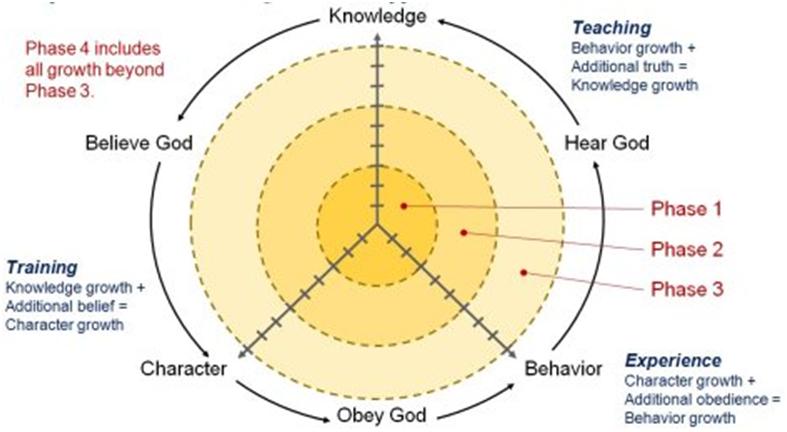I want to first and foremost thank everyone who responded to my last post asking for your perspectives on humility. Bob, Andrew, Sophie, Chris, Arnel, and Will – each of you put in time and energy to think about the subject and put your comments for all to see, and I thank you for that. May the Lord reward you for your efforts, and may he multiply the impact of your words.
What I would like to do now is take your feedback and consolidate it into a new post that can serve as a SeqHim consensus reference on humility. Many items I have taken verbatim from your comments and others I have consolidated into unique phrasing that I believes captures the spirit of the consensus. Rather than crediting your individual phrases, consider this an acknowledgement that you have done this work and not me. To the extent I have captured the consensus accurately; this is your post, not mine.
My prayer today is that reading, thinking, praying, and commenting on this post will be as helpful to you as it was for me putting it together.
Definition
Humility is that character attribute which is marked by a sense of lowness in position before God and others regardless of our given position in the world; it is the absence of pride. The humble person considers the will of God first, the needs of others second and desires of self last of all. Submission before God and others is a hallmark of biblical humility. In short, humility is an acknowledgement of who we are compared to who God is.
Scripture Reference
- Proverbs 11:2
-
Proverbs 22:4
- humility and fear of the Lord are the key to riches, honor, and life
-
Zephaniah 2:3
- seek humility
-
Mark 4:39
- The words of Christ, “Peace be still” and the storm and the waters obeyed.
-
Mark 5:41
- “Talitha Cumi”. What do I have to say to that?
-
Acts 20:19
- serve in humility
- Philippians 2:3, 4
-
Colossians 3:12
- as the elect, put on God’s characteristics – humility being one
-
2 Timothy 2:24
- as a servant of the Lord, avoid strife [prior verse] show humility when correcting
-
Titus 3:2
- Show ALL your humility – understanding that we (believers) were just like them
- James 4:6, 10
- 1 Peter 5:6
Teaching Reference
If you think you are humble, you probably are not! Humility intends to seek Christ first, not evaluate you all the time!
So much of what separates us from God (puts us out of fellowship) is ‘self’ … a prideful attitude that “I can run my life better than God yet I’m better than others because I claim to be a Christian.” As we spiritually mature and understand that in order to follow Christ we must deny self, pick up our cross and follow Him. Humility is a big part of getting outside of “self” and focusing on other people.
Pray for God to show you where you need humility. Pray for guidance and courage to change. And whenever you feel good about yourself…well pride is in the way! Whenever your feelings are all about what you are experiencing and you can’t stop thinking about your own problems…it is also another form of pride. Be for the lookout for your motives in doing good. It must be done for God and not for anything or anyone else. (Good stuff, Sophie!)
Patterns: die to self, make it a habit in actions (learning–start with “I don’t know nearly enough”, loving–start with “I don’t care nearly enough”, etc.)
Anti-Patterns: self-abasement, false allocation of credit, false humility (faking humility)
In love, God brings humility to the proud. It is a painful gift to receive, but invaluable.
Thanks to Chris for supplying the in-line content from John Piper!
- 6 Aspects of Humility
- How To Fight the Sin of Pride, Especially When You Are Praised
- How do you remain humble?
Suggested Resources
- CS Lewis’s Mere Christianity, section 3, chapter 8 entitled “the great sin”. (great reference, Bob)
- Michael Vincent Walking in Humility Seeking to live the life God desires.
- The Bible; i.e. the life of Christ is a perfect example of humility. Also Moses and Job.
Disciplines
Confront pride face-on with the help of the Holy Spirit. Speak/define/identify areas in your life where you are prideful, ask Christ to cover it. Learn to find the positive in situations and people – negativity prohibits humility, but being positive and encouraging helps you to have perspective, which develops humility. Be intentional about giving something up where you might normally be prideful (i.e. listen before speaking despite having the answer).
Service has been a huge one for Andrew. Serving others puts your attitude in check and makes you realize that the world is not so small and other people need God’s love. Andrew, this one really resonates with me too.
The Holy Spirit will convict you and obedience is the key…pay attention, listen & Obey. Check your motives frequently if not all the time when you are doing something even when you think you are doing it for others.
Make a habit of leaning on God, especially when you think you know better. Stay in the Word to remind yourself of consequences of making critical decisions based on pride.
There may be no discipline other than God’s that will take you where you need to go. For Will he used cancer and paralysis. It worked, he is healed up, mostly, and much more usable as a tool for Christ.
Circumstances
Here are some circumstances that often require humility, so be on alert!
- work situations
- competitive sporting events
- marriage
- parenting
- teaching
- mentoring
- mission work
- leadership
- teamwork
- servanthood (“one must be willing to change diapers”…great line, Will)
Some elaboration from Arnel…good stuff:
“God is constantly trying to teach me stuff, but I suspect I can’t hear because of lack of humility. So, I think there are specific circumstances, dictated by God, that we need to listen for.
For example, I write software for a living. On a micro scale, I sometimes interact with God to get me through tough problems. Many times the best solution is to throw away hours worth of work because a better solution exists. This certainly takes humility.
On a larger scale, I sometimes have to interact with other teams to negotiate shared solutions. Sometimes people act arrogant or harsh and are difficult to work with. If I ‘humble myself’ by taking harsh or unfair criticisms to heart, then I’m left feeling lowly with no energy to be useful.
I see my faults in humility.
Trying to solve to what I see on my own leads me to lie to myself over what I see or leads me to bury myself over it. If, on the other hand, I allow humility to direct me to God and to ask Him to overcome what my faults and limitations, then I can begin to grow and act in a positive way through humility.”


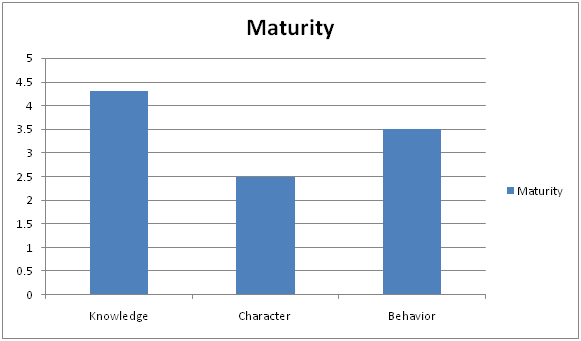
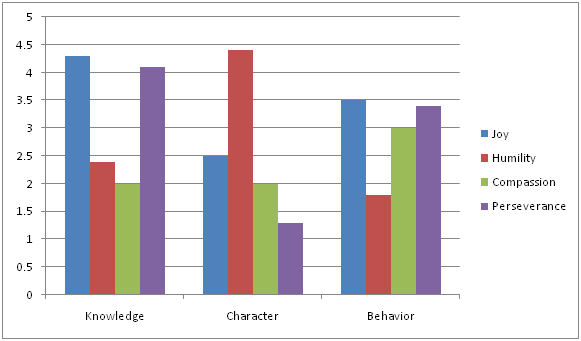
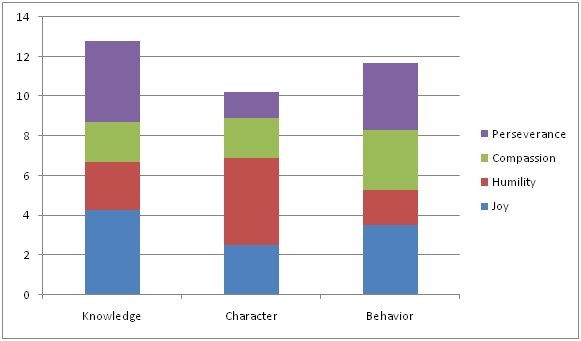
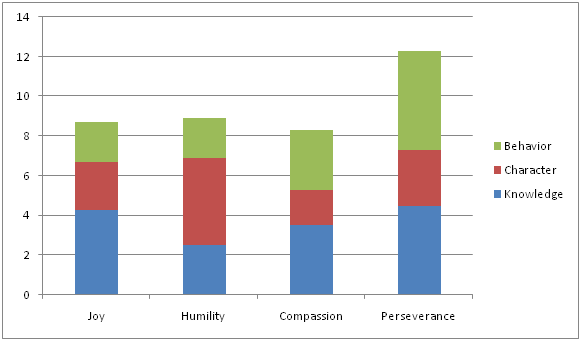
 What is the primary purpose of a man? What is their reason for being? Why are we all here? Clearly these are deep questions that have answers only God can fully understand. Though I will not pretend to answer fully in one blog post I do believe God has provided a simple view that will allow us to move forward confidently.
What is the primary purpose of a man? What is their reason for being? Why are we all here? Clearly these are deep questions that have answers only God can fully understand. Though I will not pretend to answer fully in one blog post I do believe God has provided a simple view that will allow us to move forward confidently.